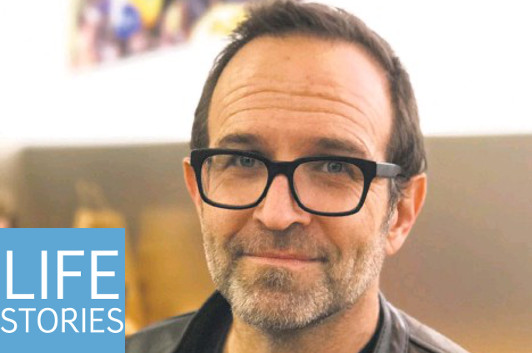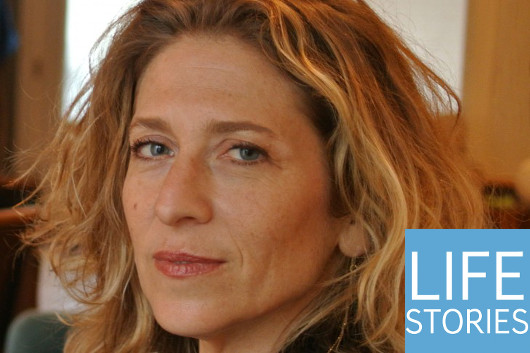Life Stories #105: Glen David Gold
I first met Glen David Gold when he was on a reading tour for his second novel, Sunnyside, which happened to be the name of the neighborhood where I lived at the time; that wasn’t the only reason we hit it off, but we did, and so I was excited when I found out he was publishing a memoir, I Will Be Complete. I spoke to him in the summer of 2018 about his family history, how he’d tried to deal with it by writing fiction in his twenties, and the path toward eventually finding the right literary structure through which to tell the story. One of the first things I mentioned is how perfectly it illustrated that famous Philip Larkin verse about what your parents do, which eventually brought us to a discussion of how some relationships simply can’t be fixed:
“I notice a lot of memoirs are—and it’s the thing that frustrated me about The Glass Castle, which is a brilliant book, which is really well-written—at the end, she forgives everybody. And, like, ‘Wait a minute! Hold on! Time out! I have a different opinion here…’
Not to castigate anybody, but there’s something… Traditional memoirs end ‘And my family are all monsters and now I’m all healed, because I’m holding this door against them…’ That’s one, and the other is ‘Ahhhh, they’re my family, so I forgive them, and welcome and embrace.’ I think there’s another way to go, which is ‘hold them accountable, and walk off alone.'”
We also talked about how working on I Will Be Complete has made Glen a more confident writer, and the newly honed skills he’s been able to take back to his fiction. Plus the story of how David Leavitt became his literary archnemesis, until he actually went to a David Leavitt reading…
Listen to Life Stories #105: Glen David Gold (MP3 file); or download this file by right-clicking (Mac users, option-click). Or subscribe to Life Stories in iTunes, where you can catch up with earlier episodes and be alerted whenever a new one is released. (If you’re already an iTunes subscriber, please consider rating and reviewing the podcast!)
photo: Sara Shay
19 December 2018 | life stories |
Life Stories #104: Minna Zallman Proctor
I met with Minna Zallman Proctor a while back, shortly after the publication of Landslide, a collection of autobiographical essays that orbit around her relationship with her mother. One of the things we discussed was how circumspect she was in the portrayal of her own children, and that prompted me to say something about how we don’t really know the author of a memoir or an autobiographical essay, that the “I” we read is a controlled, calibrated literary invention. Proctor challenged that assumption:
“The book is, at best, a portrait of my brain, of the way I think of things. In that sense, it’s incredibly honest. I don’t think that you can write a book like this without a degree of intimacy, a degree of candor and vulnerability—a great degree of those things—and I think that the vulnerability that I express in my personal essay writing… and sometimes my book reviews, too, for that matter… is in that I am laying it all out. This is the way my brain works.
“When I wrote my first book [Do You Hear What I Hear?], about my father trying to become a priest, I don’t think I fully understood that, hadn’t fully comprehended that. So that book is a very strange patchwork, in a way… part memoir, part philosophy, part research about the Episcopal Church, and lots of portraiture and interview work. All of those things kind of fit together, and they kind of don’t.
“And I think what I realized when that book came out and reviews started coming in was that when people criticized the organization of the book, what I felt was… Criticizing the book was criticizing the way I thought. And it felt much worse than if someone says, ‘You look fat in those pants.’ It was a whole different thing; it was like, ‘Your brain doesn’t organize things correctly,’ or, ‘Your brain organizes things in such a way that I can’t follow you.’
“So I was really aware of that with this book, and knew that what I was putting out there, what I felt vulnerable about, was that i was going to just let people see… I was going to try to explain to people how I think and how I feel… And in that sense, I think you really do know me from the book, because it’s constructed, but what it is is meant to be an expression of that part of my brain.”
Listen to Life Stories #104: Minna Zallman Proctor (MP3 file); or download this file by right-clicking (Mac users, option-click). Or subscribe to Life Stories in iTunes, where you can catch up with earlier episodes and be alerted whenever a new one is released. (If you’re already an iTunes subscriber, please consider rating and reviewing the podcast!)
photo: Sandra Dawn
26 July 2018 | life stories |



 Our Endless and Proper Work is my new book with Belt Publishing about starting (and sticking to) a productive writing practice.
Our Endless and Proper Work is my new book with Belt Publishing about starting (and sticking to) a productive writing practice. 
